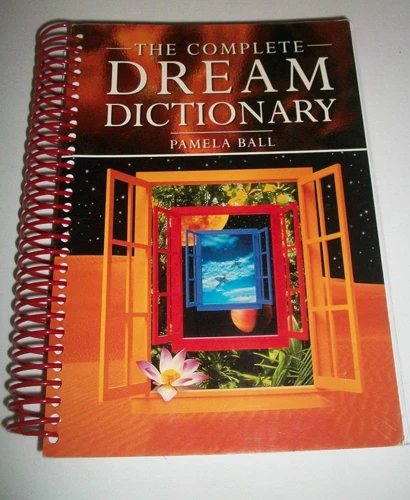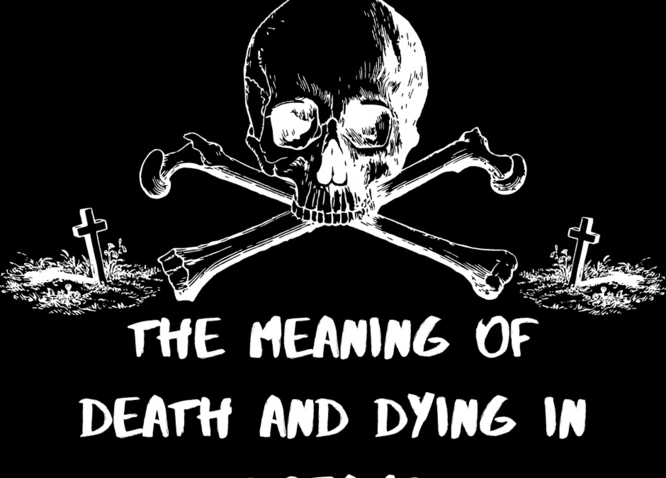Can You Die in Dreams? Exploring the Intriguing Question
Have you ever wondered if it’s possible to die in your dreams? Dreams have long been a subject of fascination and mystery, with countless theories and interpretations surrounding their nature. While dreams often feel vivid and lifelike, they exist in the realm of our subconscious mind, a place where reality and imagination blend seamlessly. In this article, we will delve into the enigmatic topic of dream death – examining its existence, experiences, and the varied psychological, scientific, and paranormal perspectives surrounding it. We will also explore the significance of dream death and the potential symbolism and personal growth it may offer. Finally, we will provide techniques for controlling dreams and avoiding dream death, empowering you to navigate the curious landscape of your dream world with confidence and understanding. Get ready to unlock the secrets of dreams and embark on a journey through the realms of the mind.
Understanding Dreams

To truly explore the intriguing question of whether you can die in dreams, it is essential to understand the mysterious world of dreams itself. Dreams are the fascinating products of our subconscious mind, acting as a gateway to our deepest desires, fears, and emotions. They occur during the rapid eye movement (REM) stage of sleep, transporting us to surreal and vivid experiences that can sometimes be difficult to differentiate from reality. Understanding why we remember dreams is a key aspect of comprehending their significance and impact on our waking lives. Dreams often weave together a tapestry of various elements, including people, places, events, and emotions, resulting in an ethereal collage that can be both familiar and bizarre. Exploring the purpose and common elements of dreams helps us unravel their underlying meanings and provides valuable insight into the phenomenon of dream death.
What Are Dreams?
Dreams are enigmatic experiences that occur during the REM stage of sleep. They are highly subjective and unique to each individual. Dreams can be defined as a series of thoughts, sensations, and images that occur in the mind while we are asleep. They often involve the recombination and reinterpretation of memories, emotions, and desires. Dreams can range from mundane and ordinary to fantastical and surreal. Some theories suggest that dreams serve as a way for the brain to process and consolidate information and emotions from the day. Others propose that dreams may have symbolic meanings and can provide insights into our subconscious mind. Understanding the essence of dreams is a fundamental step in unraveling the mysteries of dream death and its implications within the dream realm.
The Purpose of Dreams
Dreams serve a unique purpose in the realm of human consciousness. They act as a conduit for our subconscious mind to process emotions, memories, and experiences. While the exact purpose of dreams remains a subject of debate among scientists and psychologists, several theories have emerged. One theory suggests that dreams serve as a form of cognitive processing, allowing us to make sense of our daily experiences and work through unresolved conflicts or emotions. Another theory proposes that dreams assist in memory consolidation, helping to solidify and integrate information gathered throughout the day. Additionally, dreams can provide us with creative inspiration and insight, offering new perspectives and solutions to problems we may be grappling with. Understanding the purpose of dreams can shed light on their significance and the potential impact of dream death on our psychological and emotional well-being.
Common Elements in Dreams
Dreams are a complex concoction of various elements that have captivated the human mind throughout history. Common elements in dreams include people, places, events, and emotions. In our dreams, we often encounter familiar faces, such as family members, friends, or even strangers, who may symbolize different aspects of ourselves or represent unresolved issues in our waking lives. Places in dreams can range from familiar locations to entirely imaginary landscapes, creating a surreal atmosphere where reality and fantasy intertwine. Dream events can be mundane or fantastical, reflecting our experiences, desires, or anxieties. Emotions play a crucial role in dreams, as they intensify the overall experience and can linger upon waking, influencing our mood. Exploring the common elements of dreams provides valuable insight into the symbolic language that our subconscious uses to communicate with us, shedding light on the intriguing question of dream death and its significance.
Exploring Dream Death

The concept of dream death raises intriguing questions about the nature of our dreams and their potential impact on our well-being. Dream death refers to the experience of dying within a dream, often accompanied by vivid sensations of fear, helplessness, or even transcendence. This phenomenon has been both widely reported and debated among dream researchers and enthusiasts. While some argue that the experience of dying in a dream is simply a projection of our fears and anxieties, others believe that it holds deeper spiritual or psychological significance. The existence of dream death brings forth a plethora of experiences that people have had while in the dream realm. These experiences range from encountering mysterious figures, facing extraordinary challenges, to finding oneself in various scenarios such as dreams of a white dog or even dreams of being drunk. Exploring the psychological interpretations, scientific perspectives, and paranormal views surrounding dream death can shed light on this fascinating and often misunderstood aspect of our dream world.
Existence of Dream Death
Dream death, as a concept, is a topic that has intrigued both dream researchers and individuals who have experienced intense dream scenarios. While the existence of dream death is subjective and open to interpretation, many individuals claim to have had dreams where they died. These dream experiences can be unsettling, leaving individuals pondering the nature of consciousness and the boundaries between dreams and reality. Some argue that dream death is simply a vivid and symbolic representation of change or transformation in one’s life, while others believe it may indicate a glimpse into an alternate realm or an afterlife. The existence of dream death remains a mysterious and fascinating phenomenon within the realm of dreams.
Experiences of Dream Death
Experiences of dream death are varied and subjective, adding to the intrigue surrounding this phenomenon. Some individuals report vivid and immersive dreams where they experience their own death, whether it be through accidents, illnesses, or other circumstances. These dreams can evoke intense emotions, ranging from fear and panic to acceptance and curiosity. In some cases, individuals may even perceive themselves as transitioning into an afterlife or encountering deceased loved ones. The sensations and details experienced during dream death can be incredibly realistic, leaving a lasting impact upon waking. Exploring these unique experiences provides valuable insights into the complexities of the human mind and the depths of our subconscious realm.
Psychological Interpretations
Psychological interpretations of dream death delve into the depths of the human mind, examining the underlying symbolism and meanings behind this phenomenon. According to psychologists, dreams are a reflection of our subconscious thoughts, emotions, and unresolved issues. Dream death may symbolize a transformative experience, a metaphorical death of an old self, or the need to let go of certain aspects of our lives. It could also represent the fear of mortality, existential questions, or unresolved grief. Analyzing dream patterns and exploring personal associations can provide valuable insights into the psychological significance of dream death and its potential impact on our waking lives.
Scientific Perspectives
The scientific perspectives regarding dream death aim to provide explanations based on empirical evidence and physiological processes. Here are key points to consider:
1. REM Sleep Muscle Paralysis: During the REM stage, our brain sends signals to inhibit muscle movement to prevent us from acting out our dreams physically. This paralysis might give the impression of death in dreams, as the body feels immobilized.
2. Heart Rate and Brain Activity: Studies have shown that our heart rate and brain activity during dreams can vary. However, the body’s physiological responses during a dream do not necessarily indicate actual death.
3. Emotional Impact: Dreams can evoke strong emotions, including fear and anxiety. Scientifically, it is suggested that dream death experiences may stem from the release of stress hormones during these intense emotional states.
4. Memory Retrieval: Dream death experiences may be linked to the processing of memories. Researchers propose that these dreams could be triggered when the brain tries to integrate and make sense of emotionally charged memories, resulting in vivid, consequential scenarios.
It is important to note that scientific perspectives continue to evolve as research deepens our understanding of dreams and their intricacies. These perspectives offer valuable insights into the psychological and physiological aspects of dream death, shedding light on its origin and nature.
Paranormal Views
When it comes to the question of dying in dreams, some hold paranormal views that go beyond scientific or psychological explanations. These beliefs suggest the possibility that dream death may involve more than just a manifestation of our subconscious mind. According to certain paranormal views, dreams may provide glimpses into alternate realities or spiritual dimensions. It is thought that dream death could represent a spiritual journey or a connection with the afterlife. Some individuals claim to have had experiences where they encountered deceased loved ones or traveled to otherworldly realms within their dreams. These paranormal interpretations add an extra layer of mystery and intrigue to the concept of dream death, offering a perspective that transcends conventional understanding. While these views may lack scientific evidence, they contribute to the rich tapestry of ideas surrounding dreams and the enigmatic phenomenon of dying within them.
The Significance of Dream Death

In the realm of dreams, the concept of dream death holds significant symbolism and meaning. Dream death is not about physical mortality, but rather a powerful metaphor for transformation, rebirth, and personal growth. When we encounter death in our dreams, it often represents the end of a particular phase or aspect of our lives, leading to new beginnings and opportunities for self-discovery. This symbolic death can manifest as the demise of a relationship, the closure of a chapter, or the shedding of old beliefs and patterns. By confronting mortality within our dreams, we are provided with a unique opportunity to face our fears, gain a deeper understanding of ourselves, and embrace the journey of self-transformation. Dream death serves as a powerful reminder of the impermanence of life and encourages us to live fully in the present moment. It invites us to let go of what no longer serves us and embrace the endless possibilities that await us on our path of personal evolution.
Symbolism and Meaning
Dreams are often rich in symbolism and meaning, offering a unique lens through which our subconscious communicates with us. Each element in a dream may hold deeper significance, representing aspects of our thoughts, emotions, or life experiences. For example, death in dreams can symbolize the end of a particular phase or the release of emotional baggage. Water can represent various states of emotions, while flying might symbolize freedom or a desire for independence. Deciphering the symbolism and meaning behind these dream elements can provide valuable insights into our inner thoughts and desires,
Subscribe to Our Newsletter
Sign up to receive the latest news and updates.
Personal Growth and Transformation
Personal Growth and Transformation within the realm of dream death is a fascinating aspect to explore. Dreams, including those that involve death experiences, often carry symbolic meanings that can offer profound insights into our subconscious. Dream death can represent the end of a phase or the shedding of old habits and beliefs in our waking life. Through these symbolic deaths, we have the opportunity for personal growth and transformation, as we confront our fears and face the impermanence of life. These dreams can serve as catalysts for change, encouraging us to embrace new possibilities, let go of negative patterns, and embark on a journey of self-discovery and empowerment, ultimately leading to personal growth and transformation.
Facing Fears and Confronting Mortality
– Dream death can serve as a powerful metaphorical tool for facing fears and confronting mortality in the safe realm of our dreams.
– By experiencing and exploring our own mortality in dreams, we may be able to process and come to terms with our fears of death in waking life.
– Dreaming about death can provide an opportunity to confront unresolved emotions, anxieties, or traumas related to mortality.
– It allows us to examine our beliefs and attitudes towards death and can potentially lead to personal growth and acceptance.
– The symbolic nature of dream death enables us to engage with our fears on a subconscious level, granting us a unique perspective on mortality.
– Through this process, we may discover resilience, develop a deeper understanding of life’s impermanence, and find a greater appreciation for the present moment.
Controlling Dreams and Avoiding Dream Death
Controlling dreams and avoiding dream death can be an empowering endeavor for those who wish to navigate their dream world with skill and confidence. One technique to achieve this is through lucid dreaming, where the dreamer becomes aware that they are dreaming and gains the ability to actively participate in and manipulate the dream scenario. Lucid dreaming techniques, such as reality checks, journaling, and meditation, can help individuals develop the skill of lucidity. Building dream resilience is another approach to avoid experiencing dream death. This involves cultivating mental and emotional strength to face challenging or frightening dream situations. Techniques like visualization, positive affirmations, and self-reflection can enhance dream resilience. Additionally, seeking professional help such as therapy or dream analysis can provide valuable guidance and support for those grappling with intense or recurring dream experiences. Embracing these techniques and resources can assist dreamers in taking control of their dreams while safeguarding against the disconcerting concept of dream death.
Lucid Dreaming Techniques
Lucid dreaming, a state in which you become aware that you are dreaming while still in the dream, offers a unique opportunity to exert control over your dream experiences. There are several techniques that can help you achieve lucidity in your dreams. One popular method is reality testing, where you regularly question your surroundings throughout the day to increase your awareness. Another technique involves keeping a dream journal and actively recalling and reflecting on your dreams, which can enhance your dream recall and make lucidity more likely. Other methods include visualization exercises, meditation, and the use of reality checks, such as reading text or looking at a clock, to verify if you are in a dream or reality. With commitment and practice, these lucid dreaming techniques can empower you to actively engage with your dreams and potentially avoid dream death.
Building Dream Resilience
Building Dream Resilience is an essential aspect of controlling dreams and avoiding dream death. Here are some techniques to strengthen your ability to navigate and handle the challenges that may arise in your dream world:
- Reality Checks: Implementing reality checks in your waking life helps train your mind to question reality. This habit carries over into your dreams, allowing you to recognize when you are dreaming and take control.
- Journaling: Keeping a dream journal helps improve dream recall and aids in identifying patterns and recurring themes in your dreams. This self-reflection enhances your awareness and ability to recognize when you are in a dream state.
- Mindfulness: Practicing mindfulness in your waking life can carry over into your dreams, allowing you to maintain a sense of presence and control. This helps in staying calm and focused when faced with challenging or threatening situations during dream experiences.
- Visualizations: Engaging in visualization exercises before sleep can help program your mind for positive dream experiences. By envisioning yourself facing and overcoming obstacles in your dreams, you build a sense of confidence and resilience.
- Sleep Routine: Establishing a consistent sleep routine promotes better-quality sleep and increases the likelihood of experiencing lucid dreams. A well-rested mind is better equipped to handle and navigate dream scenarios.
By incorporating these practices into your life, you can strengthen your dream resilience, enabling you to face any challenges that may arise within your dream world and explore the depths of your subconscious mind with confidence.
Seeking Professional Help
Seeking professional help when confronted with recurring or distressing dreams, including those involving dream death, can offer valuable support and guidance. Consulting a licensed therapist or counselor who specializes in dream analysis or sleep disorders can provide a safe space to explore and understand the deeper meanings behind these dreams. They can assist in uncovering any underlying psychological or emotional issues that may be contributing to the dreams and offer effective therapeutic techniques to address them. Additionally, these professionals can provide strategies for improving overall sleep quality and offer coping mechanisms to manage any anxiety or fear associated with dream death experiences. Remember, seeking professional help is a proactive step in gaining greater control and insight into your dreams, ultimately enhancing your overall well-being.
Conclusion
In conclusion, the concept of dying in dreams remains a captivating and enigmatic phenomenon. While the existence of dream death is debatable, personal experiences and interpretations vary greatly. Psychological and scientific perspectives offer insights into the potential symbolism, personal growth, and facing of fears associated with dream death. Exploring lucid dreaming techniques, building dream resilience, and seeking professional help can assist in controlling dreams and avoiding undesirable outcomes such as dream death. As we continue to delve into the depths of the mind and unravel the mysteries of dreams, it is essential to approach these experiences with curiosity, open-mindedness, and a willingness to explore the hidden realms of our subconscious. Whether dreams can truly lead to death or not, they undoubtedly offer a profound and rich tapestry of exploration, meaning, and self-discovery.
Frequently Asked Questions
What are lucid dreams?
Lucid dreams are dreams in which the dreamer becomes aware that they are dreaming. This state of awareness allows the dreamer to exert some control over the dream narrative and actively participate in the dream experience.
Do dreams have any meaning?
Dreams have been the subject of interpretation and analysis for centuries. While some believe that dreams hold symbolic meaning and can provide insights into our subconscious mind, the exact meaning of dreams can vary from person to person.
Why do we forget our dreams?
Forgetting dreams is a common experience. It is believed that the transition from the dream state to waking consciousness can often lead to the rapid fading of dream memories. Additionally, the brain may prioritize storing and consolidating important waking memories over dream memories.
Can dreams predict the future?
There is no scientific evidence to suggest that dreams can predict the future or serve as a reliable method of divination. While some individuals may claim to have had prophetic dreams, such experiences are largely considered anecdotal.
Why do nightmares occur?
Nightmares can be caused by various factors, including stress, anxiety, trauma, and certain medications. They often reflect our fears and unresolved emotions, providing an avenue for the subconscious mind to process and confront these distressing experiences.
What is sleep paralysis?
Sleep paralysis is a temporary inability to move or speak that occurs when waking up or falling asleep. It can be accompanied by hallucinations and a sense of pressure on the chest. Sleep paralysis is thought to result from a disruption in the transition between sleep stages.
Can you die in a dream?
While death in dreams may feel incredibly real and vivid, it does not result in actual physical death. Dream death is usually symbolic or metaphorical and can represent various aspects of our psyche, such as transformation, change, or confronting our fears.
Are recurring dreams significant?
Recurring dreams can hold significance and may point to unresolved issues or recurring patterns in our lives. These dreams often serve as reminders or messages from our subconscious, urging us to address these unresolved aspects and find resolution.
Can dream symbols have universal meanings?
Dream symbols can have personal, cultural, and universal meanings. While some symbols may be universally recognized, such as water representing emotions, it is essential to consider personal associations, cultural contexts, and individual experiences when interpreting dream symbols.
Can dreams be controlled?
With practice, some individuals can develop the ability to control their dreams. This state of lucid dreaming allows the dreamer to actively influence the dream narrative and engage in desired experiences. Various techniques, such as reality checks and dream journaling, can aid in achieving lucidity in dreams.










